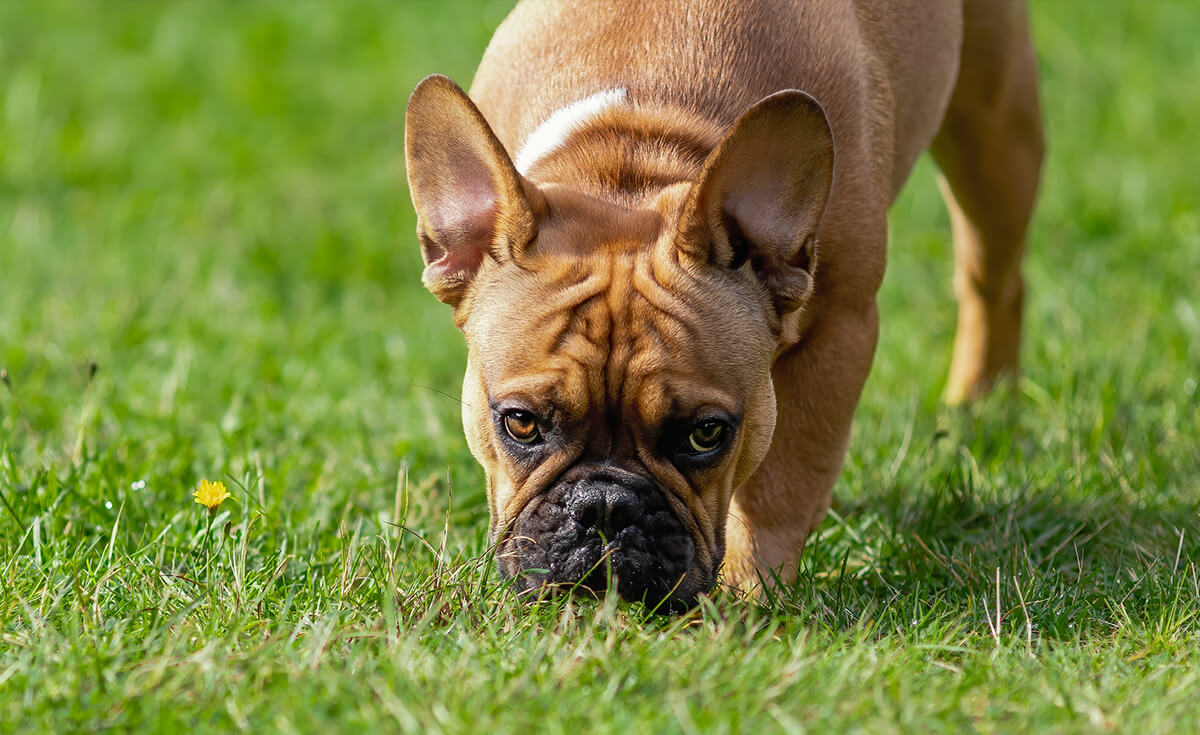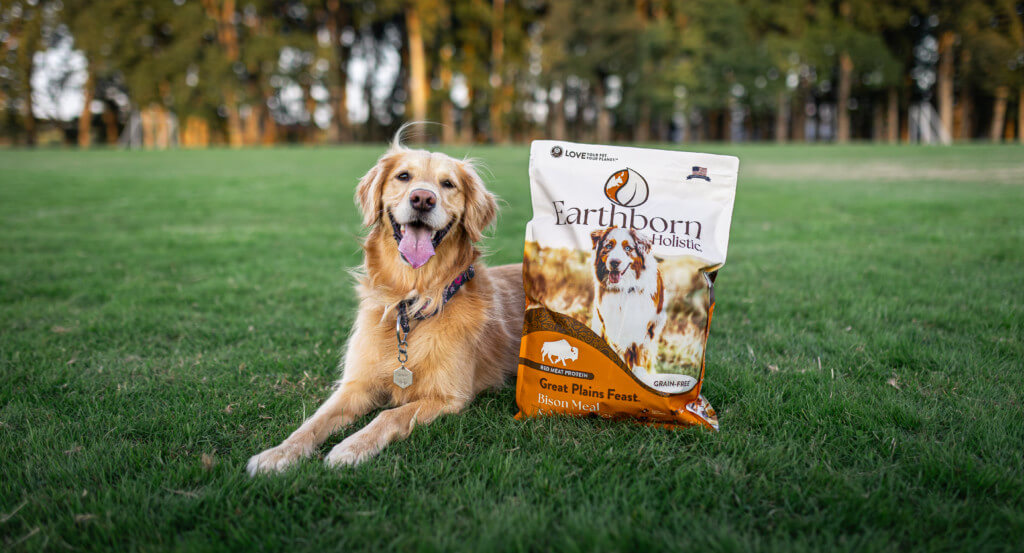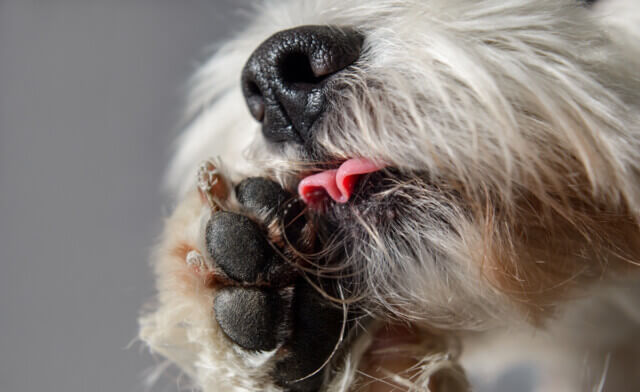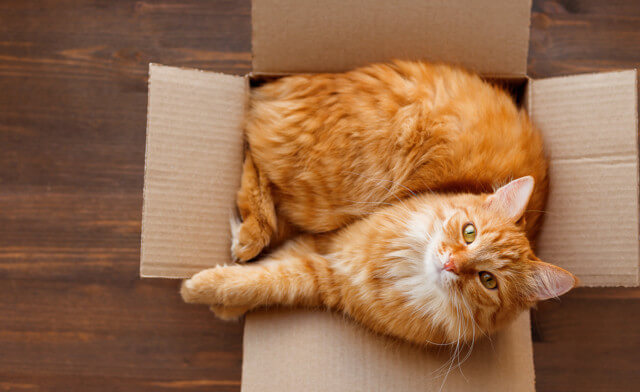Why Does My Dog Eat Grass?
If you’re a dog owner, you’ve probably noticed that your furry friend loves to munch on grass from time to time. While it’s a common behavior, it can leave you wondering why your dog is eating your lawn. Is it a sign of a health problem, or is it simply a natural behavior? In this article, we’ll explore the reasons behind this behavior and give you some tips on how to deal with it as pet parents.

Why do dogs eat grass?
Dogs have been known to eat grass for as long as humans have been keeping them as pets. Some experts believe that it’s a natural dog behavior that dogs engage in to help them digest their food. Grass is high in fiber, which can help move food through their digestive system and prevent constipation. Additionally, grass may provide dogs with certain nutrients that they may not be getting from their regular diet.
Has your dog ever vomited after eating grass? Another theory behind why dogs eat grass is that it’s a form of self-comfort. Dogs may instinctively eat grass when they’re feeling nauseous or have an upset stomach. The grass can help them vomit, which can relieve their discomfort. This behavior is more common in dogs that have a history of eating things they shouldn’t, such as garbage or non-food items.
However, the exact reason why dogs eat grass is still not fully understood. Some dogs may just enjoy the taste of grass! Ultimately, it’s a natural behavior that has been observed in dogs of all ages and breeds.
Is it harmful for dogs to eat grass?
In general, eating grass is not harmful to dogs. Grass is not toxic to dogs, and it’s unlikely to cause any serious health problems. However, there are some potential risks to consider.
One concern is that the grass could be treated with pesticides or other chemicals that could be harmful to your dog. If you suspect that your dog has eaten grass that has been treated with chemicals, you should contact your vet right away.
Another risk is that the grass could be contaminated with bacteria or parasites, which could make your dog sick. Make sure to keep your yard clean and free of feces, which can attract flies and other pests that can spread disease.
Finally, if your dog eats a lot of grass or has other symptoms, such as vomiting or diarrhea, it could show signs of illness or an underlying health problem. You should consult with your veterinarian to rule out any serious health concerns or medical conditions.
How to prevent your dog from eating grass
If you’re concerned about your dog’s grass-eating habit, there are some steps you can take to prevent it. One option is to keep your dog away from areas of the yard where grass is growing. You can also try planting a designated area of the yard with dog-friendly grass that is safe for your dog to eat.
Another option is to provide your dog with alternative sources of fiber and nutrients. You can try adding vegetables or fruits to their diet, such as carrots or apples. You can also provide them with dog treats that are high in fiber. Treats used in dog enrichment toys or chew toys can be a fun way to keep your pet occupied as well!
Finally, if your dog is eating grass excessively or has other symptoms, such as vomiting or diarrhea, you should consult with your veterinarian to rule out any intestinal parasites or serious health concerns.
Alternatives to grass for dogs
If you’re looking for alternative options to grass for your dog, there are several options to consider. One option is to create a dog run or designated play area using pea gravel or mulch. These materials are safe for dogs to play on and can be easier to maintain than grass.
Another option is to create a garden area using dog-friendly plants, such as lavender or rosemary. These plants not only provide a safe space for your dog to play, but they also have natural health benefits, such as calming effects or anti-inflammatory properties.
Finally, you can consider using artificial turf. This material looks and feels like real grass, but it doesn’t require any maintenance and is safe for dogs to play on.
The role of diet in preventing grass-eating
While grass-eating is a natural behavior for dogs, there are some dietary changes you can make to reduce the likelihood of your dog eating grass. One option is to provide your dog with a high-fiber diet. Fiber can help move food through their digestive system and prevent constipation, which can reduce their desire to eat grass.

Additionally, you can try adding vegetables or fruits to their diet. Our Unrefined grain-inclusive dog food recipes are a balanced diet packed with high quality ancient grains and superfoods like pumpkin to help aid in your dog’s digestion. These foods are high in fiber and can provide your dog with important nutrients that they may not be getting from their current diet.
Finally, make sure to provide your dog with fresh, clean water at all times. Dehydration can cause your dog to crave grass, as it can provide them with moisture.
Common misconceptions about dogs and grass-eating
There are several common misconceptions about dogs and grass-eating that are important to address. One common misconception is that dogs eat grass when they’re sick or need to vomit. While this may be true in some cases, it’s not always the case. Dogs may also eat grass simply because they enjoy the taste!
Another misconception is that eating grass is a sign of nutritional deficiencies. While grass can provide dogs with certain nutrients, it’s not a substitute for a balanced dog food diet.
Finally, some people believe that eating grass is a sign of boredom or lack of exercise. While these factors can contribute to behavioral problems in dogs, they are normally not the sole cause of grass-eating.
In conclusion, eating grass is a natural behavior for dogs that has been observed in dogs of all ages and breeds. While it’s generally not harmful to dogs, there are some potential risks to consider, such as exposure to pesticides or the risk of bacterial or parasitic infections. If your dog is eating grass excessively or has other symptoms, such as vomiting or diarrhea, you should consult with your veterinarian to rule out any serious health concerns. Additionally, there are steps you can take to prevent your dog from eating grass, such as providing them with alternative sources of fiber and nutrients or using alternative materials, such as pea gravel or artificial turf. By understanding the reasons behind your dog’s grass-eating behavior and taking steps to address it, you can help keep your dog healthy and your yard looking green and healthy.




